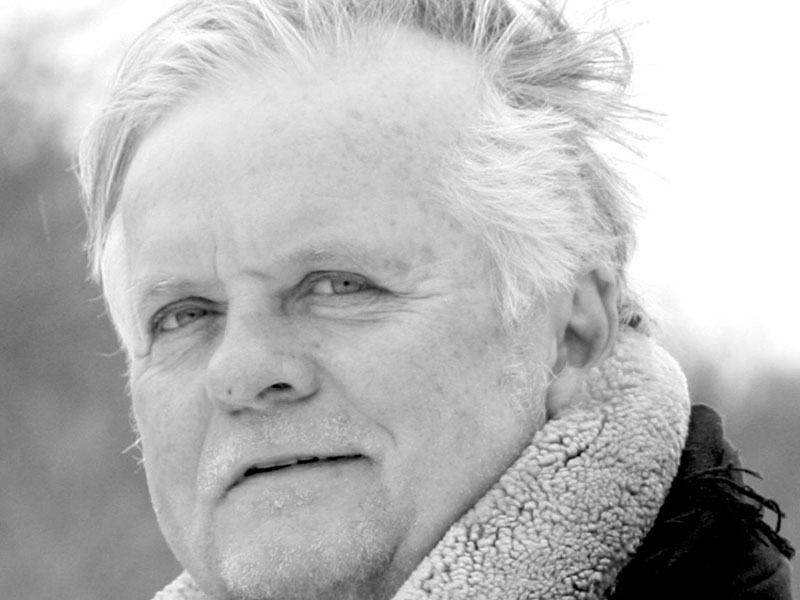Columnists
The Conversation Books

It was mostly when I pulled into my driveway and got out of the car that I heard something less familiar.
I oriented to the sound of the small rapids of Slab Creek, a stone’s throw away from where I stood. It winds through a clay ravine woven with spent lilac, heaving Manitoba maples and Thornberry bushes. But there was a change in the air, I sensed. I was hearing the rushing creek waters, something I would normally only hear during ice-out in spring.
I was doubtful that the water level had risen in my short time away and it took a moment to realize that my newly augmented hearing was telling me of something that had been forgotten as it became unheard through the subtle fog of hearing loss over past years. I had stood in this spot a half dozen years ago experiencing birdsong that I hadn’t heard in long years. That was the first time I wore hearing aids, and now with augmented technology as part of a replacement set, my hearing range was ten notches up. Hearing is not only about volume, it’s about being able to interpret the spectrum within a soundscape. Through sound recognition our brain translates what we are hearing and where it is coming from, and in turn helps keep us physically balanced.
A career around sound—music, recording— often VERY loud soundscapes began to take its toll a number of years back. I resisted help in the beginning. I remember thinking, well it’s just the fact that I can’t hear certain things as well as previous and I have to simply adjust the volume or move closer to the sound, source. But here’s the thing. When you realize how our abilities to hear are directly related to brain function, you wanna do something pronto. You may hear the sound, but not the words. If the brain no longer receives the stimulation of sound that could be words describing concepts, how can it possibly store it for you in memory, one of the most import human functions? No wonder I didn’t remember. Cognition: I was losing the facility to send the words to give the brain a chance to process.
When I got my first hearing aids way back when, my initial observations were simple: like how loud the diesel engine in my truck really was or, more personally, how loud it was when I peed or flushed the toilet. I must say I’m more discreet about it now. But more emphatically, the most definable biggest thing I had been missing without notice was birdsong. I actually asked someone with normal hearing if the birds always sounded at that volume. I took this reawakening up a level on a visit to Long Point. I stood alone near the edge of the cliff that sits ten storeys above the lake and while I gazed into the expanse of horizon I cranked the volume up on my hearing aids and took in a full-up, surround-sound concert of a bird land symphony that allowed me to fly with them. Well, almost. Fortunately, the cognitive part also reminded me of my mortal being and that attempting to fly from where I stood would not be such a good thing.
Here’s something else I discovered. The complexities of brain function, the network of nerves that stimulate cognition, when they stop getting the prompts from the architecture of the ear, the brain loses certain high functioning abilities. The spinoff has a direct effect on personality, often leading to social isolation, anxiety and depression. It’s not so much about hearing speech as it is about quality of life.
There are many who have thrived in their calling despite deafness; Helen Keller, Thomas Edison, contemporary African-American author Connie Briscoe; Vinton Cerf “father of the Internet”; rapper Will.i.am (William Adams); actor Jane Lynch of television’s Friends. But no doubt the best known is Ludwig van Beethoven. He was out for a country stroll one day with a dear friend and they came upon a shepherd playing a tune on a pipe. That part of the story is classically idyllic. The rest isn’t. Beethoven recognized the expression of his friend as delighting in the music, but Beethoven couldn’t hear it and the musical genius was never the same. “Know that my noblest faculty, my hearing, has greatly deteriorated, he wrote in a letter to a friend. Beethoven’s hearing had begun to degenerate at age 24 and 20 years later he was completely deaf. “…for two years I have avoided almost all social gatherings,” he wrote to his friend. “…because it is impossible to say to people I am deaf. If I belonged to any other profession it would be easier but in my profession it is a frightful state.” Beethoven used what are now referred to as the “Conversation Books”, scribblers to write answers to written questions. Yet all of his greatest compositions were written by sensing the vibrations of his piano. On May 7, 1824 his now renowned Ode to Joy was premiered to a flood of applause, but Beethoven couldn’t hear it.
For me, hearing the sound of a creek chattering or birdsong is what I call the gifts that technology, at least in this case, can offer. In the larger picture they may seem minor, but it is these small things that allow us to imagine, and that is everything.

Comments (0)